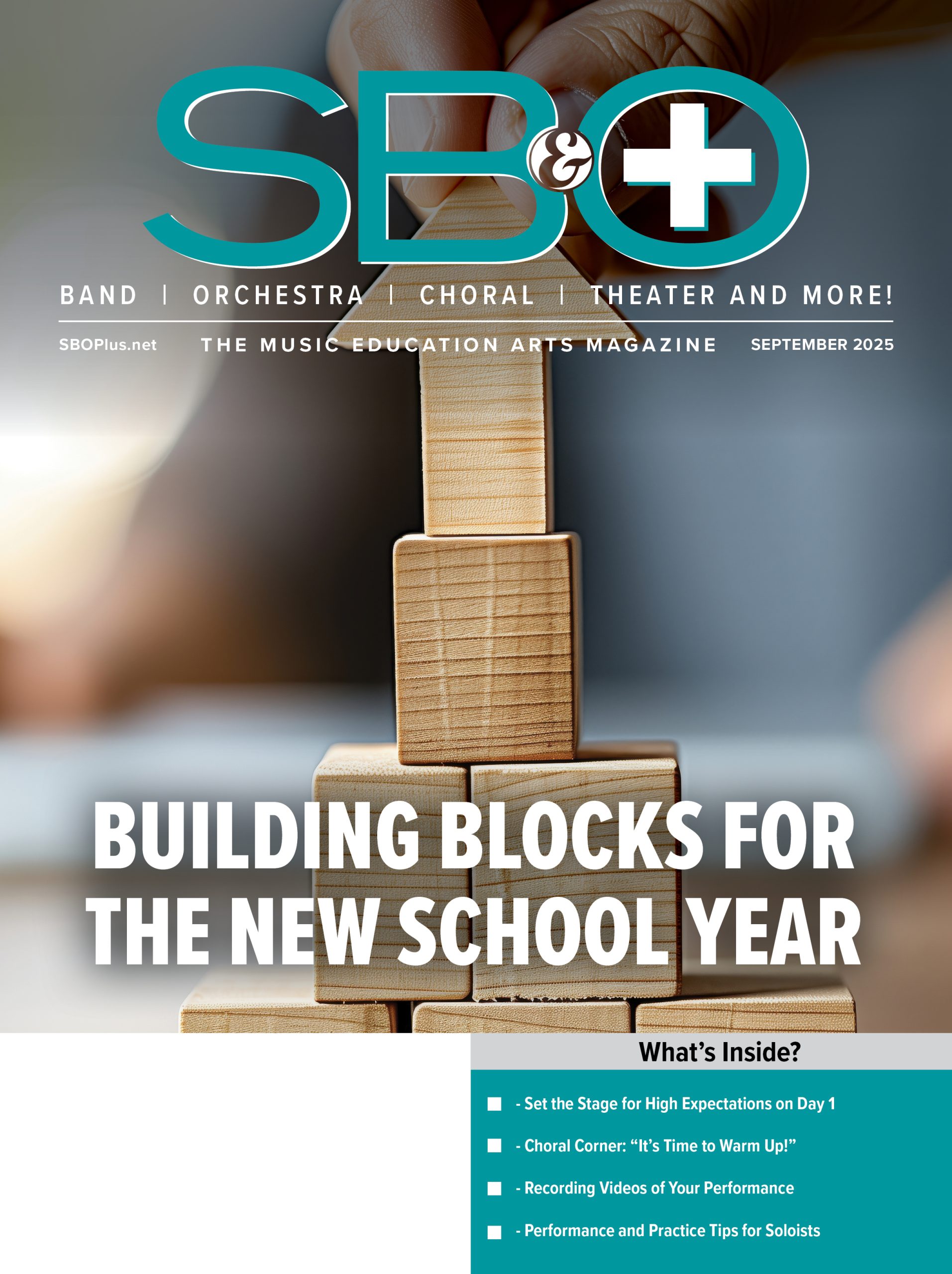 It’s been a long time since I sat in freshman theory while working on my undergraduate degree in college. Like most knowledge/skill music activities, you lose it if you don’t use it. So, as a composer/arranger, I was particularly interested in discovering The Modern Musician’s Guide to Music Theory and Composition. Author David Von Kampen is a composer from Lincoln, Nebraska, and is currently a music theory and literature lecturer at the University of Nebraska. He teaches various courses and directs the award-winning UNL Jazz Singers.
It’s been a long time since I sat in freshman theory while working on my undergraduate degree in college. Like most knowledge/skill music activities, you lose it if you don’t use it. So, as a composer/arranger, I was particularly interested in discovering The Modern Musician’s Guide to Music Theory and Composition. Author David Von Kampen is a composer from Lincoln, Nebraska, and is currently a music theory and literature lecturer at the University of Nebraska. He teaches various courses and directs the award-winning UNL Jazz Singers.
“I’ll play it first, then tell you what it is later.” – Miles Davis
This quote from legendary jazz trumpet great Miles Davis opens the book. The author’s words sum up these thoughts and philosophy of music theory very well and succinctly:
“Music theory is not about what music should or shouldn’t do; it’s about what music does.”
“…to understand the creative decisions of the composer.”
“The more we understand how composers and songwriters think, the more meaningfully we can connect with the music we encounter.”
The book is divided into thirteen very digestible and easy-to-read chapters. The author uses classic and modern-day music examples to illustrate those theory principles throughout the book.
The chapters in the book are all user-friendly and relevant to today’s modern music, as well as enhancing our understanding of the music from the past.
Chapter One – Which Part Writing Rules Still Matter
It’s been a minute since the “common practice” era of Bach, Mozart, Beethoven, and many other outstanding composers. Our musical composing practices and tastes have changed since the 1700s! This chapter helps us to understand the “common practice” rules while updating what is currently accepted in today’s modern music, all under the watchful eye of voice leading.
Chapter Two – How to Compose a Compelling Melody
Insightful thoughts and ideas on composing a compelling melody include harmonic structure, melodic contour and shape, rhythm choices, and sequencing. Many examples of modern music are shown with these ideas and concepts in mind.
Chapter Three – Why Some Chords Sound Better Than Others
Chapter Four – How to Read a Lead Sheet and Understand Chord Symbols
Thoughts on how to properly voice chords using basic voicing concepts. Which notes should be doubled, and which should not, and voicing seventh chords are discussed.
Chapter Five – Basic Jazz Harmony
Chapter Six – Writing Satisfying Chord Progressions
Chapter Seven – Reharmonization
These three chapters were the most impactful and helpful to me! The number of light bulbs that turned on the “aha!” moments that occurred are too numerous to count! As stated earlier, a lot has changed since the “common practice,” and a lot has changed since freshman theory! Again, these are some of the book’s most practical and insightful chapters.
Chapter Eight – The Spectacular Value of Ear Training
“This is the only chapter in this book that matters.” – David Von Kempen
It’s a pretty bold statement and yet true. The author presents several ideas and approaches to developing aural skills and the importance of these skills to all musicians.
Chapter Nine – Setting Text Effectively
Chapter Ten – Writing Great Piano Accompaniments
While these two chapters don’t necessarily have anything to do with music theory proper, they impact and affect modern composers’ writing.
“Thinking like a composer can help us to understand music better.” – David Von Kampen
Chapter Eleven – Why Counterpoint Matters and How to Do It
While the author doesn’t delve into the do’s and don’ts of a Bach fugue, he points out and offers some interesting perspectives on what counterpoint looks like and how it functions in today’s modern tunes.
Chapter Twelve – Pop Song Structures
This chapter is a fascinating and in-depth look at the musical structures of modern music, including twelve-bar blues, AABA format, and some of the variations found within both genres.
Chapter Thirteen – How to Listen to Music Better
In summing up the book, chapter thirteen offers several suggestions on listening techniques and approaches. However, the author also shares why we need music theory and why it is essential to understand today’s music along with the music of Mozart, Bach, Beethoven, and other composing giants of the past. The author’s own words sum up these ideas nicely:
“Music theory exists to serve your listening experience, your musical experience.”
“The purpose of music theory is only to describe what happens in music.”
“(Music theory) is not a musical recipe composers cook with. It’s not a list of rules you adhere to in order to make correct music.”
“(Music) theory gives us tools to better understand what happens in music and inform our composing, conducting, and analysis. And our listening.”
The Modern Musician’s Guide to
Music Theory and Composition
David Von Kampen
2023 – GIA Publications Inc. • $34.95 • 213 pages

























